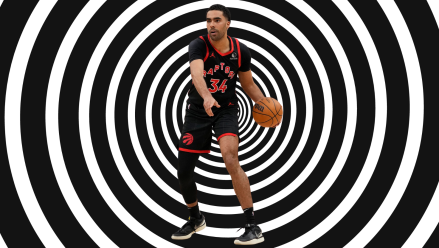Chicago Mayor Brandon Johnson is proposing a 10.25% tax on adjusted gross sports betting revenue generated in the city for his 2026 budget, which would bring top operators in Illinois to a combined rate above 50% when including the maximum state levy.
Johnson’s $16.6 billion budget, which would take effect Jan. 1 if passed as is, has multiple ways of closing a $1.15 billion deficit the city faces. The sports betting tax proposal, which projects to generate $26 million in revenue, was one not recommended by the city’s budget task force in its interim report released in late August when it came to gaming in the city. The group suggested a per wager surcharge for online, city-based wagers of either 25 or 50 cents that was projected to raise between $8.5 million and $17 million.
A per wager surcharge took effect at the state level July 1 at the start of the new fiscal year after Illinois Gov. JB Pritzker signed his budget into law. The state’s 10 mobile sportsbooks are paying 25 cents for each wager for the first 20 million accepted and then 50 cents above that threshold.
It raised more than $10 million in revenue in July and August, but that figure is expected to increase notably when September’s sports betting statistics are released as industry leaders FanDuel and DraftKings all but certainly eclipsed 20 million wagers for the fiscal year during the month to begin paying the 50-cent surcharge.
It was the second straight year Illinois lawmakers radically altered their revenue collection methods for sports betting. Pritzker’s budget for Fiscal Year 2025 changed the tax rate from a base 15% on adjusted gross revenue (AGR) to a progressive one ranging from 20% to 40% based on revenue thresholds over the course of a fiscal year. The state saw an increase of $261.9 million in tax revenue from the new rates compared to FY 2024.
Could a horse trade be in the making?
There is no guarantee that the tax will be included in Johnson’s final budget approved by the City Council, but the fact there was no mention of an ordinance passed at the committee level to introduce video gaming terminals (VGTs) in the city on a limited basis means there is something aldermen can trade if they feel the sports betting tax will gain no traction.
Johnson is opposed to allowing VGTs in the city, which would also risk Bally’s foregoing a $4 million annual payment to the city as part of the Host Community Agreement for bringing a casino to the River West neighborhood. Johnson’s budget projects $44 million in tax revenue from Bally’s, which is expected to open its permanent venue in late September.
Bally’s temporary casino in nearby River North at Medinah Temple has underwhelmed in relation to meeting city revenue projections since opening in September 2023. Johnson’s budgets projected $35 million in tax receipts for both 2024 and 2025; Bally’s generated $16.1 million in 2024 and has produced $11.4 million through September this year.
The sports betting tax would also further enrage industry operators that have been asked in consecutive years to pay a significantly higher amount of taxes than the original 15% signed into law when sports wagering was legalized by Pritzker in 2019 as part of a massive gaming expansion in the state that included six new casino licenses.
The $26 million in projected revenue from the city tax implies $255.6 million in sports betting AGR is generated in Chicago, the third-largest market in the United States. That is 40.4% of the $632.5 million in operator AGR winnings reported in Cook County for the 2024 calendar year.
Year-to-date revenue this year, however, is up 23.6% through the first eight months of 2025 to $488.9 million. If that pace holds, Cook County AGR would total $781.9 million for the year. Using the same 40.4% representation for Chicago, the city projects to generate $315.9 million in AGR. The 10.25% city tax would result in $32.4 million in receipts.
Mobile operators at the minimum pay a 20% state tax, a 2% tax on revenue generated in Cook County, and a 25-cent per wager surcharge. Adding the proposed Chicago city tax would create a 32.5% minimum rate on city-placed wagers before the surcharge. Most operators, though, advance at least one tax rate higher to 25% over the course of the fiscal year since the first revenue threshold is $30 million AGR.
In the case of FanDuel and DraftKings, however, the titans would spend a good portion of the year paying a combined 52.5% in taxes for city-based bets after clearing $200 million in fiscal year AGR before tacking on the per wager surcharges. Previous projections with the surcharge put the effective tax rate on the two operators above 51% for the fiscal year; the city tax would put it above 60%.








